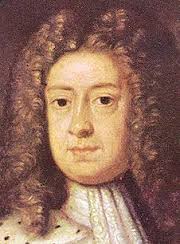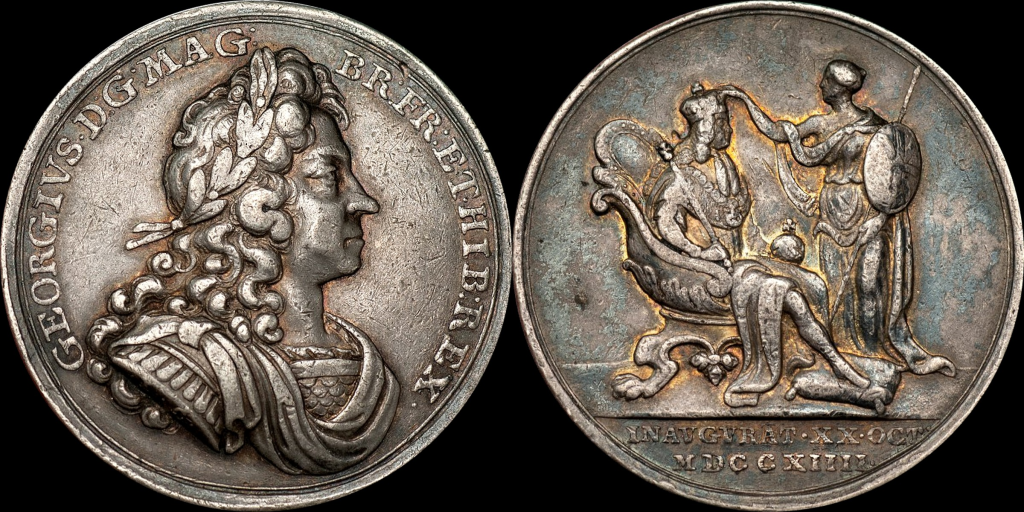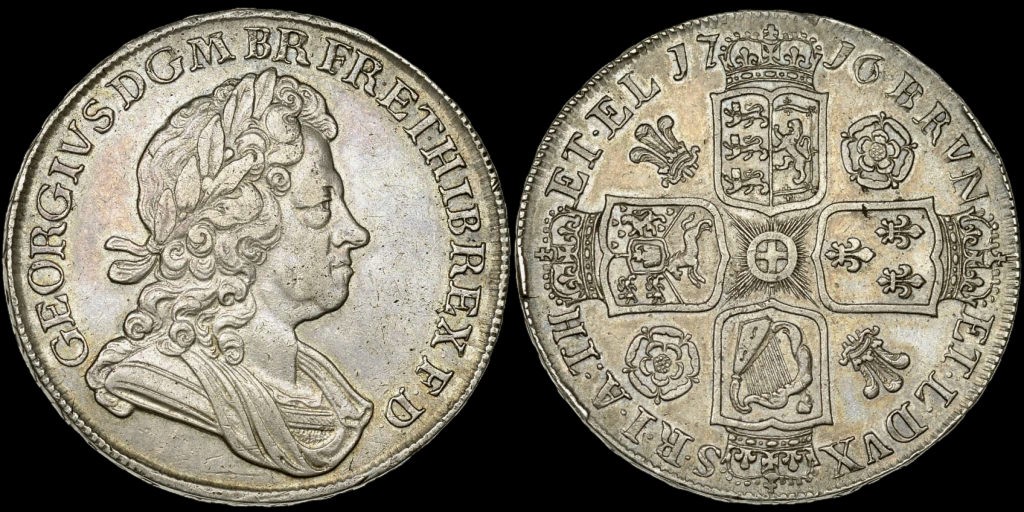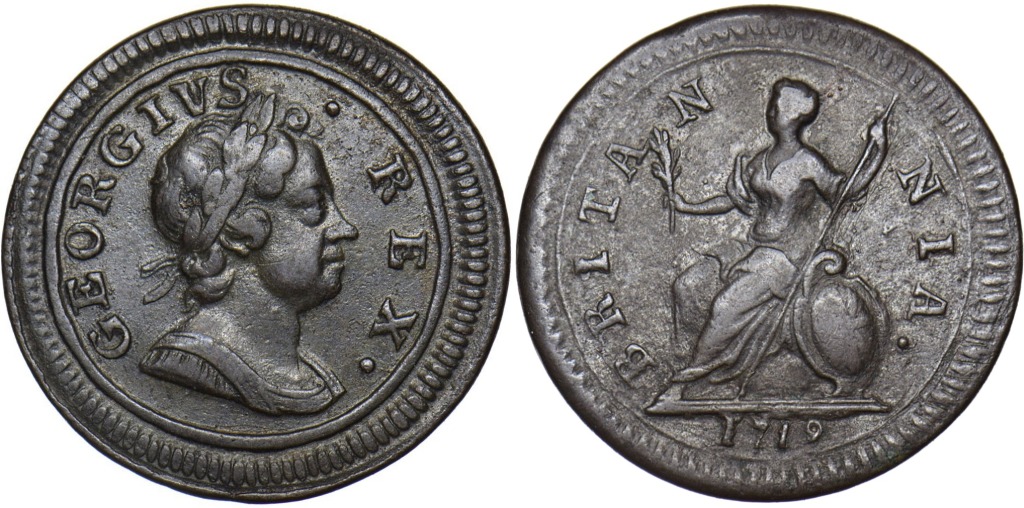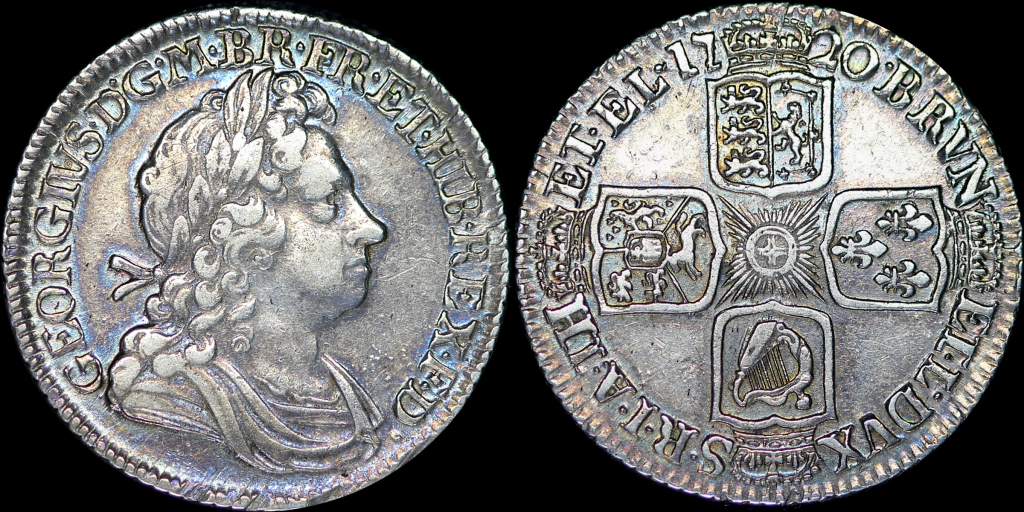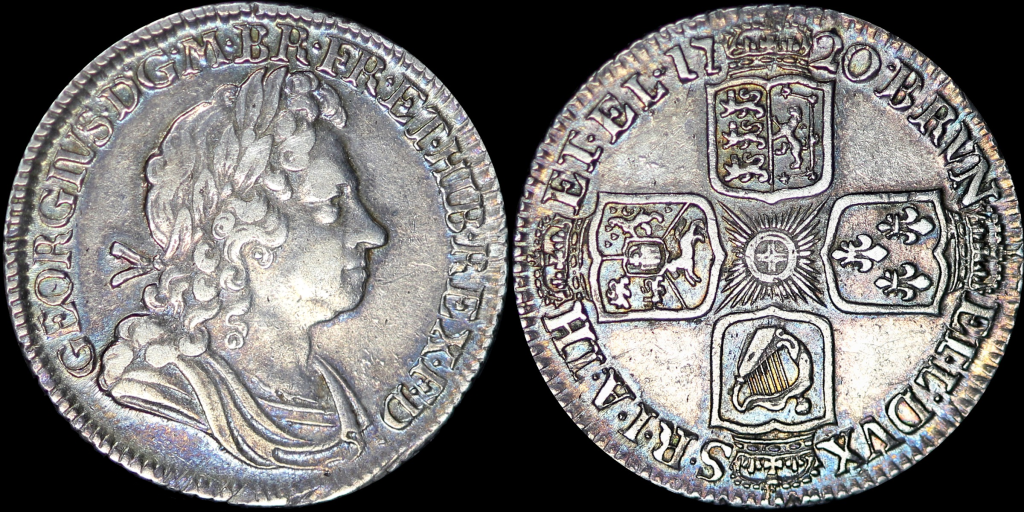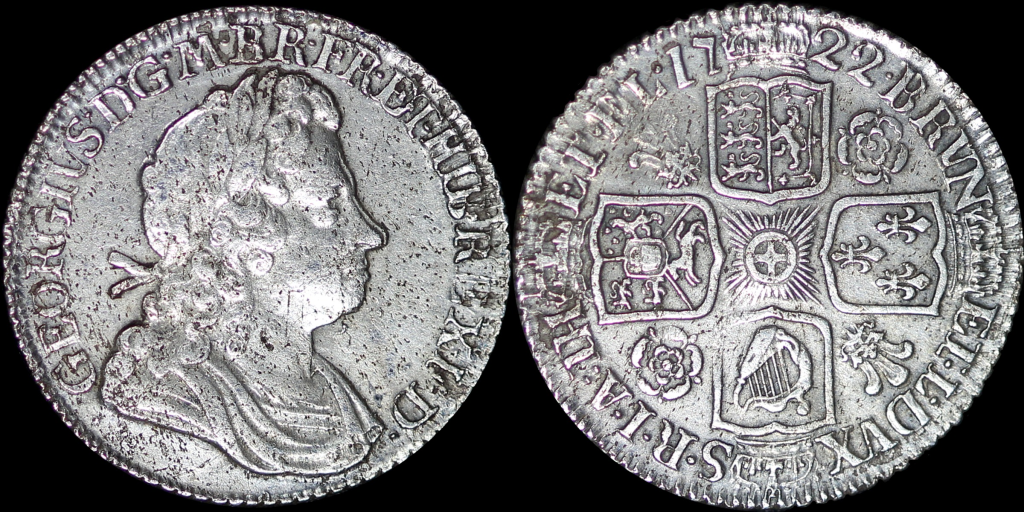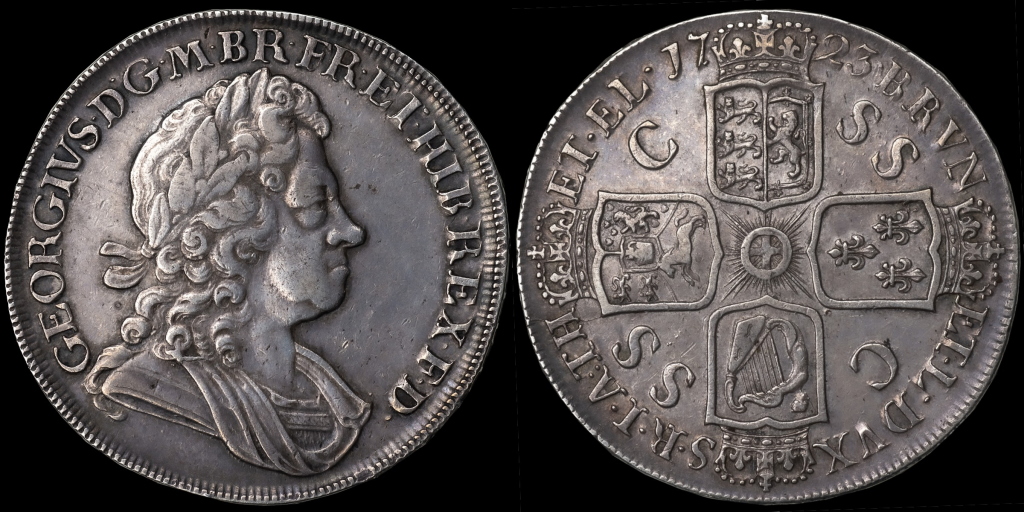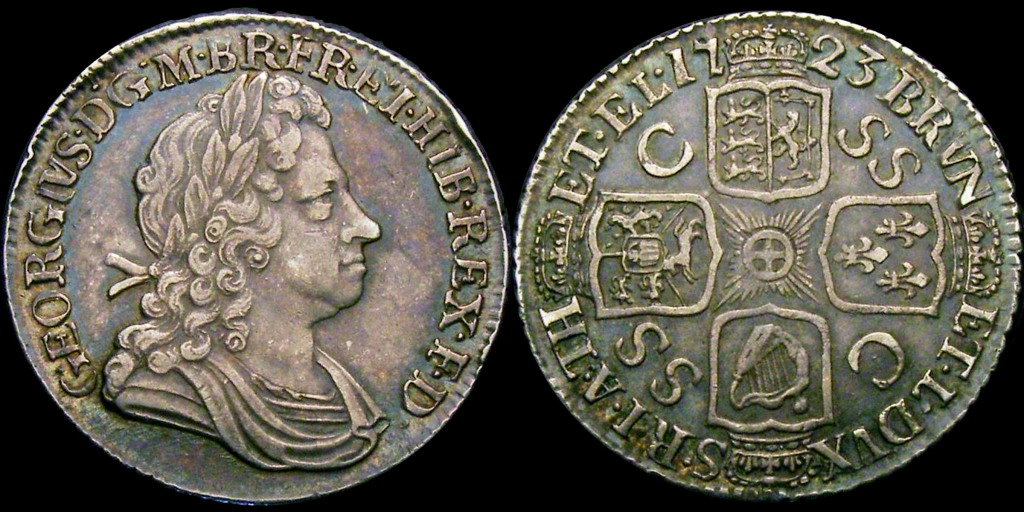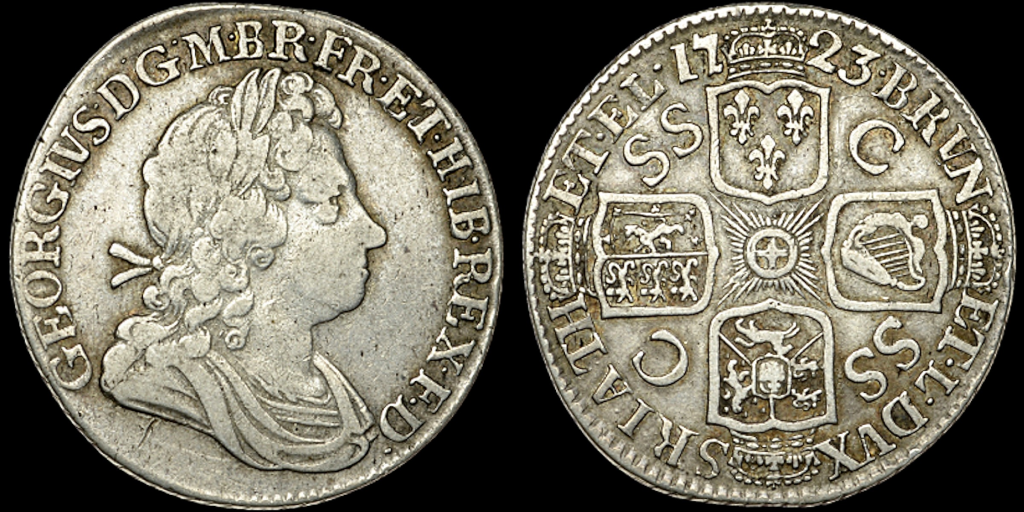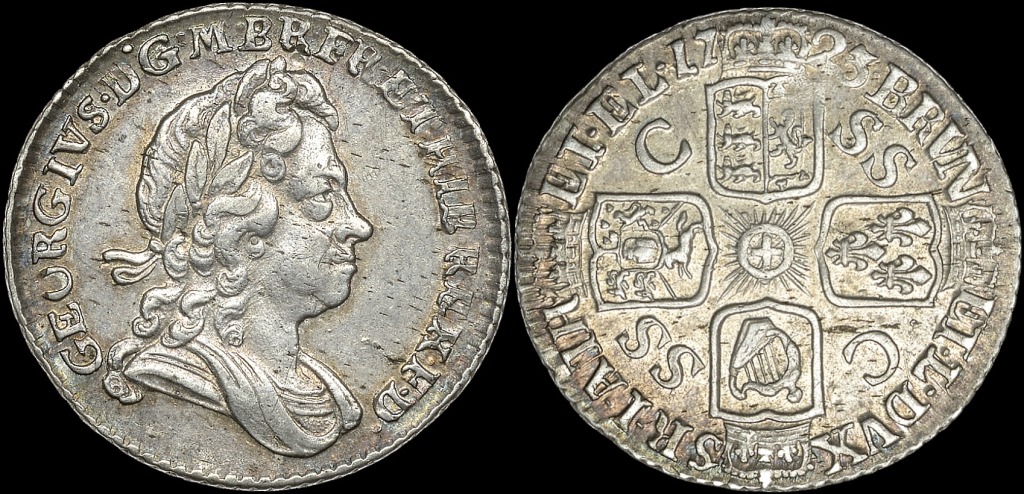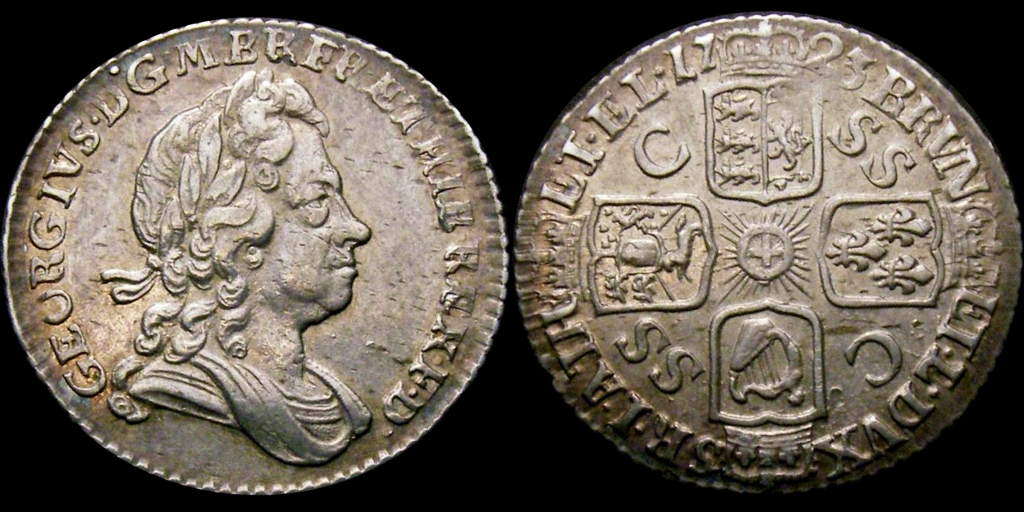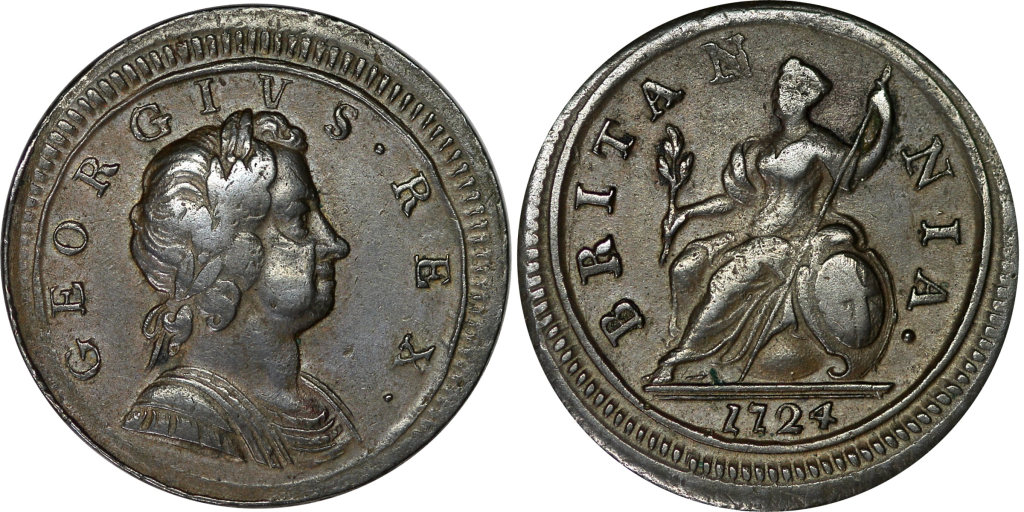Key Events
| 1714 | George I, the first Hanoverian King, succeeds his distant cousin, Anne. |
| 1714 | A new Parliament is elected with a strong Whig majority led by Robert Walpole. |
| 1715 | The Jacobite rising begins in Scotland intending to place the ‘Old Pretender” James Edward Stuart, heir to James II on the throne. The rebellion is defeated at Sheriffmuir. The Riot Act comes into force – “An Act for preventing tumults and riotous assemblies, and for the more speedy and effectual punishing the rioters”. Repealed in 1967. |
| 1716 | The Septennial Act allows for General Elections to be held |
| 1717 | Townshend is dismissed from the government by George, causing Walpole to resign |
| 1719 | Daniel Defoe publishes Robinson Crusoe |
| 1720 | South Sea Bubble bursts, leaving many investors ruined. |
| 1721 | Sir Robert Walpole returns to government as First Lord of the Treasury where he remains in office until 1742. He is effectively the first Prime Minister. |
| 1722 | Death of the Duke of Marlborough. |
| 1726 | First circulating library in Britain opens in Edinburgh, Scotland. |
| 1726 | Jonathan Swift publishes Gulliver’s Travels. |
| 1727 | Death of the scientist, Isaac Newton. |
| 1727 | George I dies in Hanover, aged 67. |
1714 Official Coronation Medal
Eimer 470
Coins
1716 Crown SECVNDO
S. 3639 Bull 1540 ESC 110 (scarce)
Ex DNW Auction March 2020 Lot 233
1719 Farthing Large Obverse Letters
S. 3662
1720 Shilling
S. 3646 Bull 1572 ESC 1168
1722 Shilling Roses and Plumes
S. 3645 Bull 1581 ESC 1174 (scarce)
1723 Crown SSC
S. 3640 Bull 1545 ESC 114 (scarce)
1723 Shilling SSC First Bust
S. 3647 Bull 1586 ESC 1176
Slabbed and graded LCGS 55 (NEF)
1723 Shilling SSC French Arms at Date
S. 3647 Bull 1589 ESC 1177 R2 (very rare)
Slabbed and graded LCGS 15 (Near Fine)
1723 Sixpence SSC
S. 3652 Bull 1612 ESC 1600
Small letters on obverse, O of GEORGIVS open at the top
ex DNW September 2019 Lot 1605
Slabbed and graded LCGS 60 (EF)
The South Sea Company (SSC) famously known for the economically disastrous “South Sea Bubble” (1720) of over-speculation which made the Company go bust, had previously supplied much silver bullion to the Mint in exchange for the right to export money overseas. The silver supplied up to 1723 produced a large coinage of Crowns, Half Crowns, Shillings and Sixpences.
1724 Halfpenny
S. 3660

